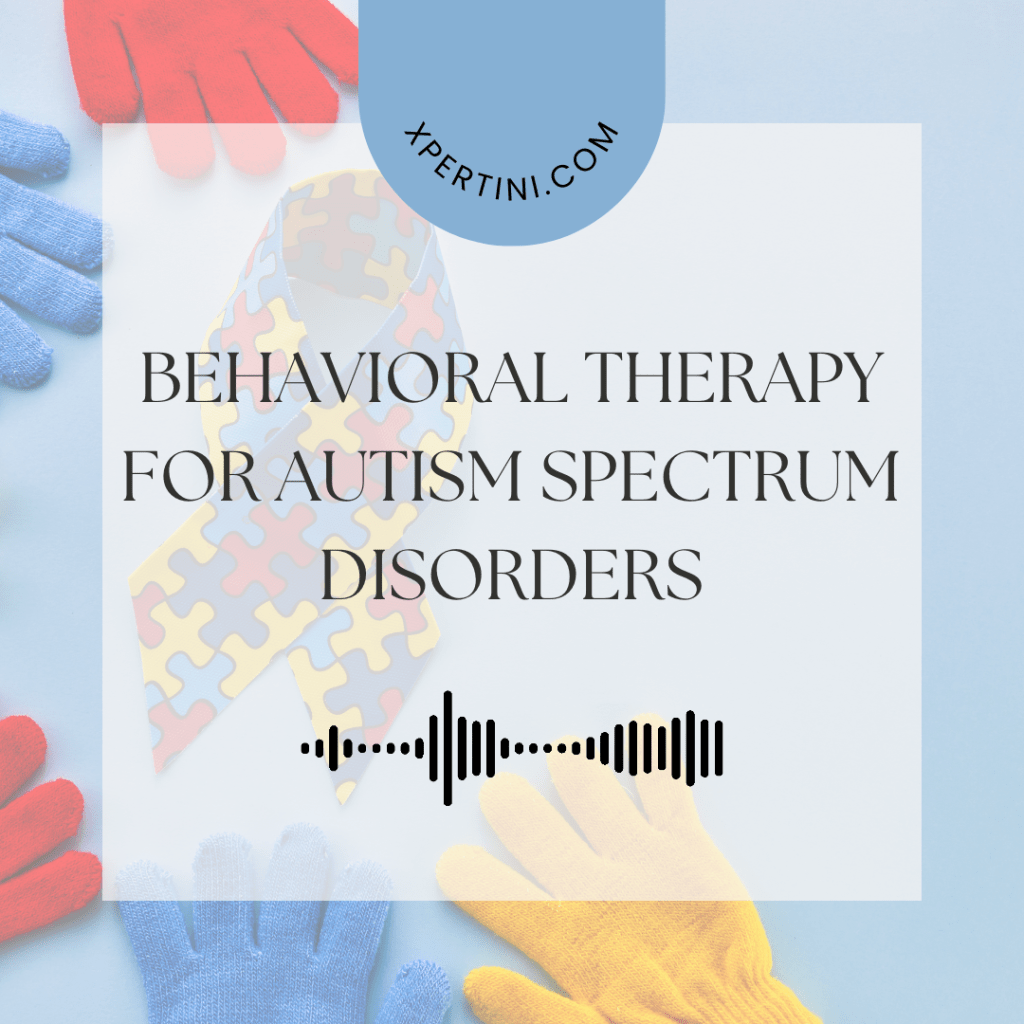Behavioral Therapy for Autism Spectrum Disorders
Course Summary
This comprehensive course on Autism Spectrum Disorder (ASD) Intervention provides a thorough exploration of evidence-based practices, behavioral therapy, and interdisciplinary collaboration for professionals and individuals seeking to enhance their expertise in the field. Through a structured and informative approach, the course delves into the historical perspective, tracing the evolution of behavioral therapy for ASD and highlighting key milestones and influential figures in its development.
The foundation of the course lies in elucidating the core principles and theories underlying behavioral therapy, emphasizing behavior analysis and its application to individuals with ASD. Learners gain insights into tailoring interventions to individual needs, navigating the challenges faced in the field, and understanding the unique characteristics of ASD, including both challenges and strengths.
An integral aspect of the course is the exploration of culturally competent practices in behavioral therapy. Professionals learn to consider cultural factors in the context of ASD intervention, ensuring that strategies are sensitive and adaptable to diverse backgrounds. Interdisciplinary collaboration takes center stage, demonstrating the importance of professionals, families, and caregivers working harmoniously to create successful and comprehensive approaches.
The course meticulously introduces techniques for collecting relevant data and analyzing it to assess the effectiveness of behavioral interventions. Learners become adept at navigating the complexities of data collection, utilizing systematic approaches to track progress accurately. Furthermore, the course offers an overview of various career paths in the field, guiding individuals on professional development and further education opportunities.
In summary, this course equips learners with a deep understanding of evidence-based practices, behavioral therapy, and interdisciplinary collaboration, fostering expertise in addressing the unique needs of individuals with ASD. It transcends conventional approaches, providing practical insights and strategies for professionals to make a meaningful impact in autism intervention.
Course Overview
This course provides a comprehensive understanding of behavioral therapy for Autism Spectrum Disorders (ASD). Participants will explore theoretical foundations, evidence-based practices, and interdisciplinary collaboration in the context of ASD. The course aims to equip learners with knowledge and skills for effective intervention and support for individuals with ASD.
Course Objectives
- Understand core principles of behavioral therapy for Autism Spectrum Disorders.
- Analyze the historical development and evolution of behavioral therapy in the context of ASD.
- Stay informed about current research and advancements in autism and behavioral therapy.
- Demonstrate proficiency in collecting and analyzing data to evaluate the effectiveness of behavioral interventions.
- Collaborate effectively with professionals, families, and caregivers in the treatment of ASD.
- Recognize and address the unique challenges and strengths of individuals with ASD.
- Apply cultural competence in the context of behavioral therapy for ASD.
- Explore various career opportunities and pathways in the field of autism intervention.
Course Outcomes
- Articulate foundational principles of behavioral therapy.
- Critically analyze the historical development of behavioral therapy in the context of ASD.
- Stay informed about current research and advancements in autism and behavioral therapy.
- Demonstrate proficiency in collecting and analyzing data to evaluate intervention effectiveness.
- Collaborate effectively with professionals, families, and caregivers in the treatment of ASD.
- Recognize and address the unique challenges and strengths of individuals with ASD.
- Apply cultural competence in the context of behavioral therapy for ASD.
- Explore various career opportunities and pathways in the field of autism intervention.
Course Audience
Aspiring Behavior Analysts
Special Education Professionals
Psychologists and Therapists
Parents and Caregivers of individuals with ASD
Healthcare Professionals interested in autism intervention

